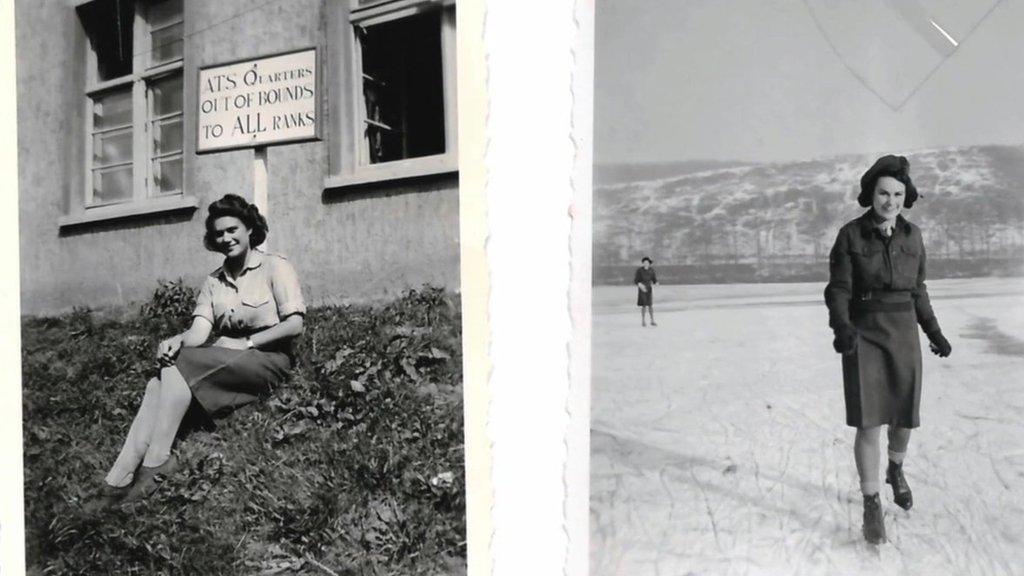VE Day: Last Nazi message intercepted by Bletchley Park revealed
- Published
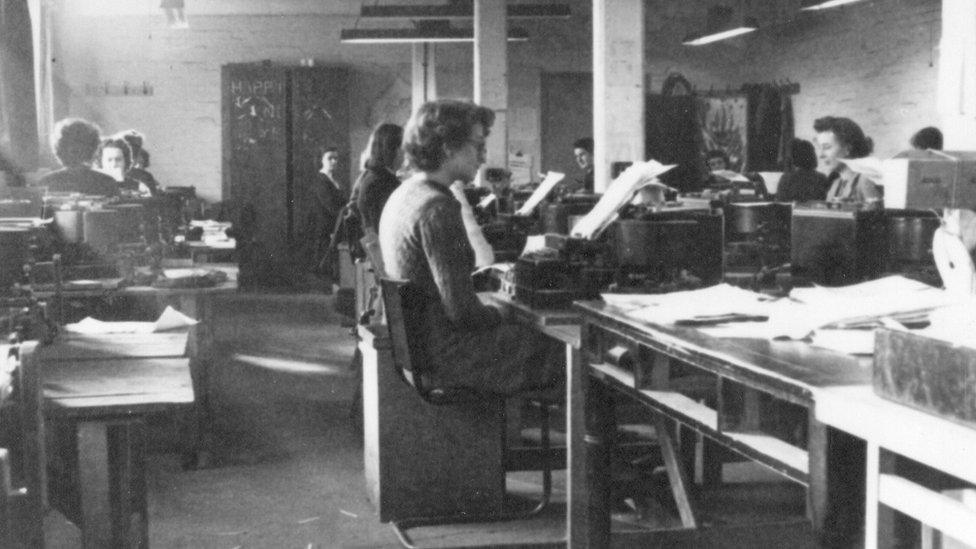
The messages give us insight into "the real people behind the machinery of war", says GCHQ's historian
The last German military communications decoded at Bletchley Park in World War Two have been revealed to mark the 75th anniversary of VE Day.
They were broadcast on 7 May 1945 by a military radio network making its final stand in Cuxhaven on Germany's North Sea coast.
The message reports the arrival of British troops and ends: "Closing down for ever - all the best - goodbye."
After Germany surrendered, VE Day was declared the next day.
In 1944, this German military radio network, codenamed BROWN, had extended across Europe sending reports about the development of experimental weapons.
But a year later, as the Allies entered the town and closed in on his position, a radio operator at his post signed off to any colleagues who might still be listening.
His words - sent at 07:35 on 7 May - would be the last from the German military intercepted by codebreakers at Bletchley Park before the surrender.
"British troops entered Cuxhaven at 1400 on 6 May. From now on all radio traffic will cease - wishing you all the best," the message from a Lieutenant Kunkel said.
This was immediately followed by: "Closing down for ever - all the best - goodbye".
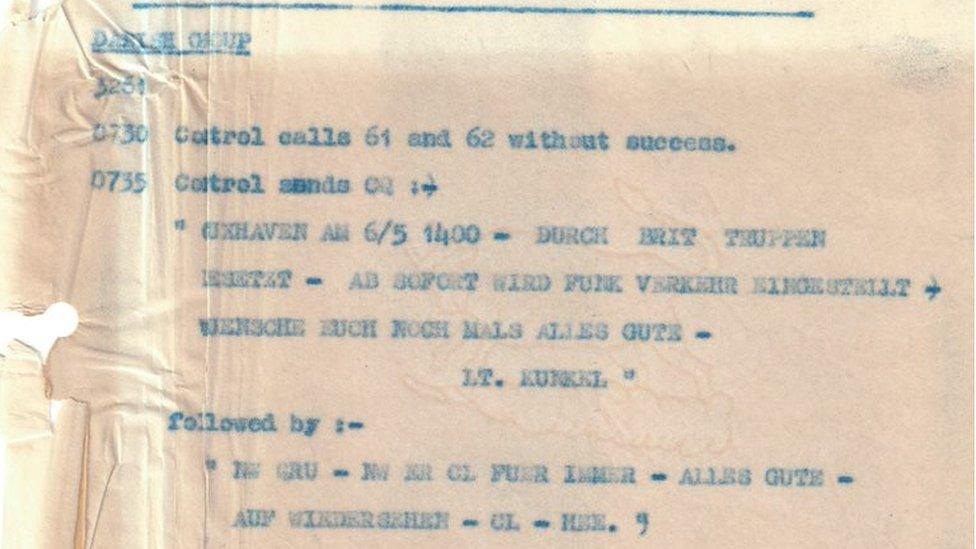
"Auf Wiedersehen" says the last message intercepted by Bletchley Park
In another message intercepted a few days earlier - also released by Bletchley Park's successor organisation GCHQ as part of the VE Day anniversary celebrations - a German soldier based on the Danish coast asked his radio control whether they had any spare cigarettes.
"No cigarettes here," came the reply.
The material is being digitised by the Bletchley Park Trust and will eventually be available in its entirety.
"These transcripts give us a small insight into the real people behind the machinery of war," says GCHQ historian Tony Comer.
Bletchley Park's war-time work breaking enemy codes - most famously those made by the Enigma machine - was kept entirely secret, not just during the war, but for many years after.
The intelligence it produced was credited with shortening the conflict and saving many lives.
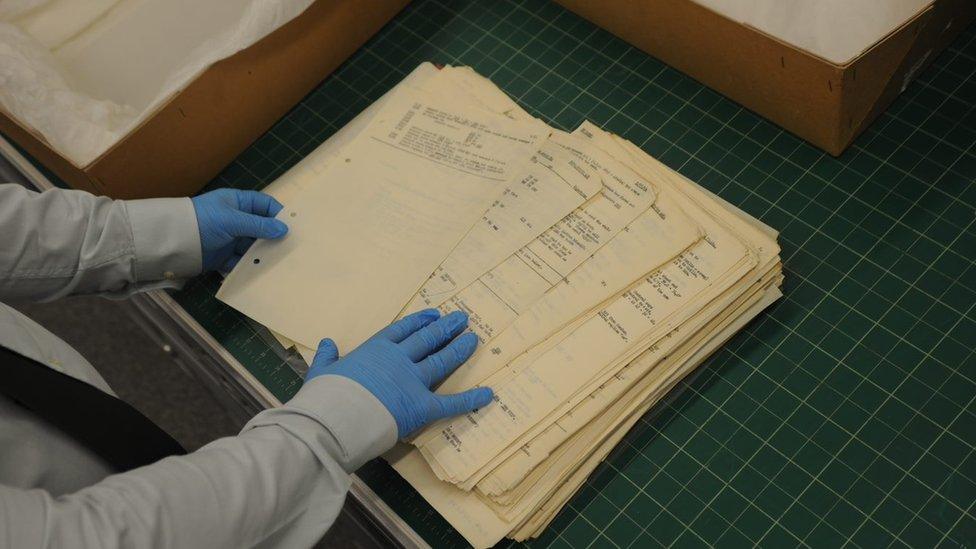
The transcripts are being digitised by the Bletchley Park Trust
But even as the war in Europe ended, Bletchley Park carried on working - deciphering Japanese codes as well as monitoring German communications to confirm that Nazi forces were surrendering and that there would be no attempt to mount a last stand.
Almost 9,000 people were working at Bletchley Park in the spring of 1945, the majority of them women. Helen Andrews, who began working at Bletchley Park when she was 17 and who is now a Chelsea pensioner aged 94, said she remembered a festive atmosphere on VE Day.
"A bloke came into the room where we were working and said: 'It's all over. They've surrendered.'"
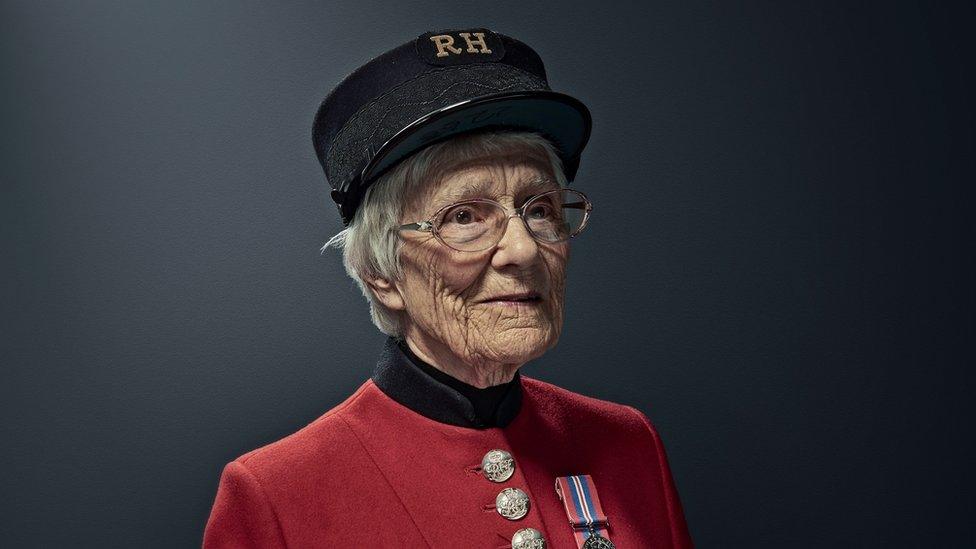
Former codebreaker Helen Andrews - now a Chelsea pensioner - hitched to London to celebrate the first VE Day
There was a tea party followed by music and dancing, she said. She described her emotions as a release from anxiety coupled with exhaustion.
Along with some friends she worked with, Mrs Andrews hitched a lift to London and headed down to Trafalgar Square, where people were singing and jumping in the fountains.
She then hitched back in a lorry after midnight. She returned to work at Bletchley after VE Day - but did not talk about what she did there for another 70 years.
- Published7 May 2020
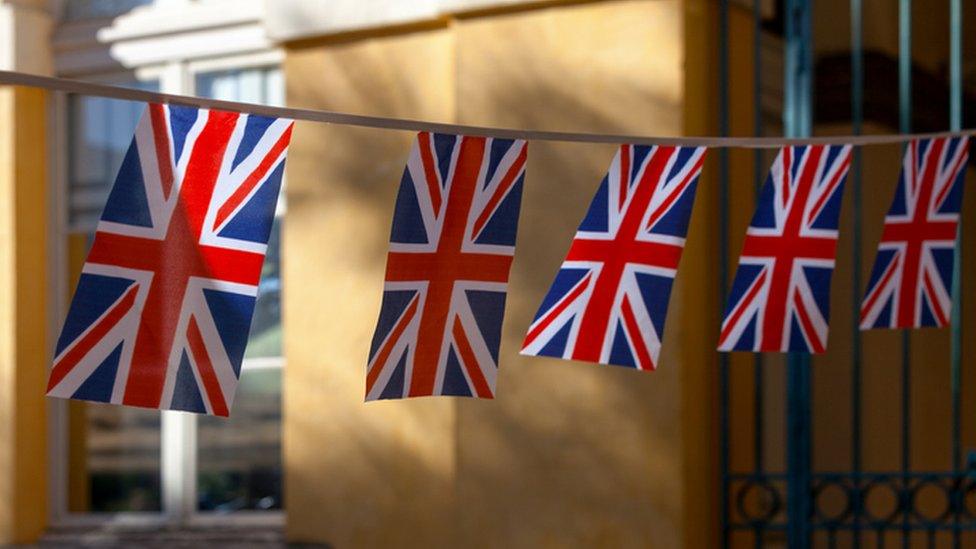
- Published7 May 2020
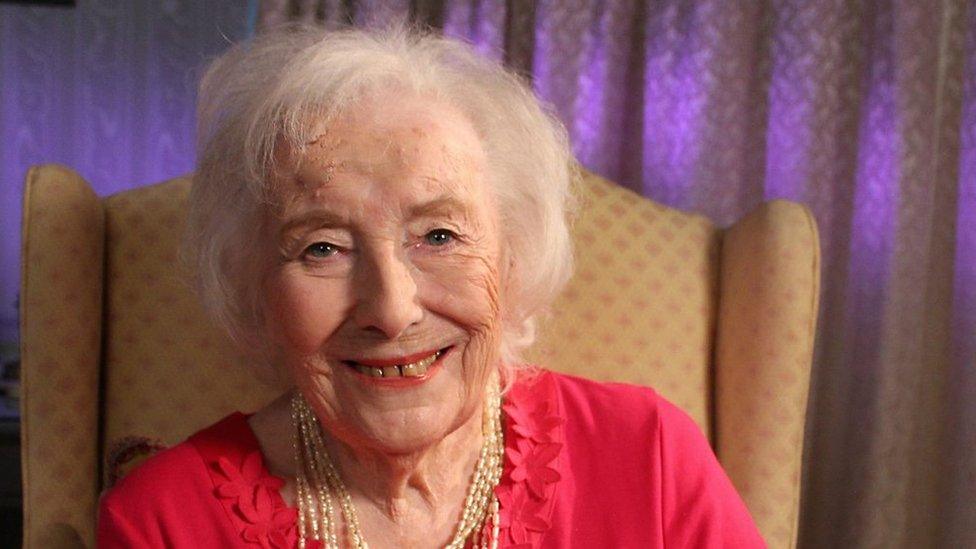
- Published23 December 2019
